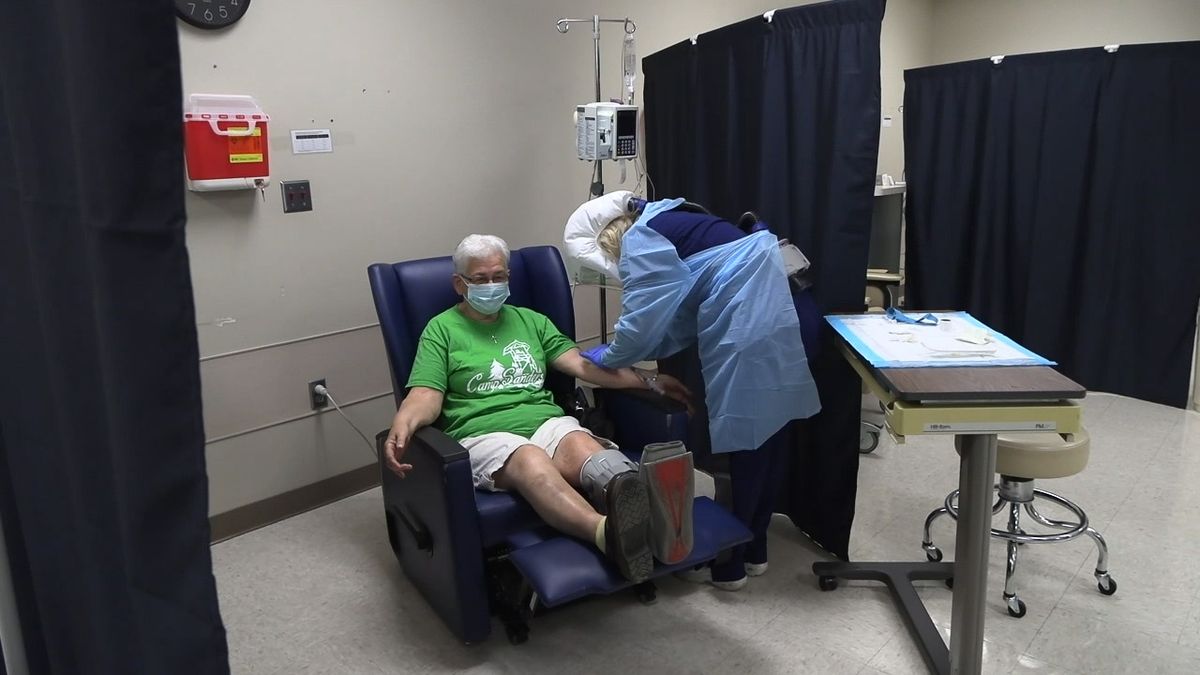Who needs monoclonal antibody treatment for COVID-19 and how to get it

Local providers are offering monoclonal antibody therapy for those patients who test positive for COVID-19, qualify as a person who is at higher risk for being hospitalized with the virus and get a referral from their doctor.
The therapy is offered as an infusion or injections, and so far more than 200 patients have been treated with the therapy at Providence Sacred Heart’s outpatient clinic.
MultiCare is also offering monoclonal antibody therapy to patients who qualify at its main Rockwood clinic location.
There is a limited supply of the monoclonal antibody therapy coming into the state, and providers are using certain criteria to evaluate who can get the treatment.
A person who has tested positive for COVID-19 and is no later than 10 days past experiencing symptoms can benefit from this therapy, but providers are targeting the treatment to those who are at highest risk for developing severe COVID-19 or ending up in the hospital.
Health care providers make referrals for a patient to receive the treatment based on conditions that make a person high risk or medically fragile. A person with underlying health conditions like diabetes, cancer or chronic lung disease could benefit from the treatment, Dr. Cara Beatty, chief medical officer of Providence Northeast Medical Group, said.
Monoclonal antibodies are proteins that mimic the immune system to fight viruses, according to the Federal Drug Administration.
Patients referred for this treatment get an appointment quickly in order for it to be effective, and they come to the clinic for a scheduled 20-minute infusion. Patients stay for an hour following the treatment in case they have an adverse reaction, Beatty said.
So far, patients have ranged from teenagers to adults to the elderly in the Providence clinic, and most patients report feeling better following their infusion.
So far, studies of the treatment, which is under an emergency use authorization, have shown that it can reduce the risk of needing to be hospitalized, Beatty said.
Providers can make the referral for treatment regardless of whether a person has been vaccinated or not, and sometimes patients who are immunocompromised or at highest risk might benefit from treatment even with a breakthrough case.
And while treatment has improved significantly, Beatty said vaccination is still the best protection from the virus even following treatment.
The timing for when you should get vaccinated after having COVID-19 or being treated for it might differ depending on your treatment and underlying health conditions. Beatty recommended that patients consult their physician on the timing but emphasized that vaccination is still critical for everyone.
“There’s clear evidence that you should still get vaccinated with or without treatment,” Beatty said.
Staffing the monoclonal antibody treatment clinic has been manageable despite the hospitals recently treating record numbers of COVID patients, Beatty said, noting that some staff are volunteering their time to the clinic.
“When this treatment became available, and we started to see the data about the potential impact on reducing hospitalizations, it became a priority for us to offer this which is why we’ve pulled providers from other places to extend capacity,” Beatty said.